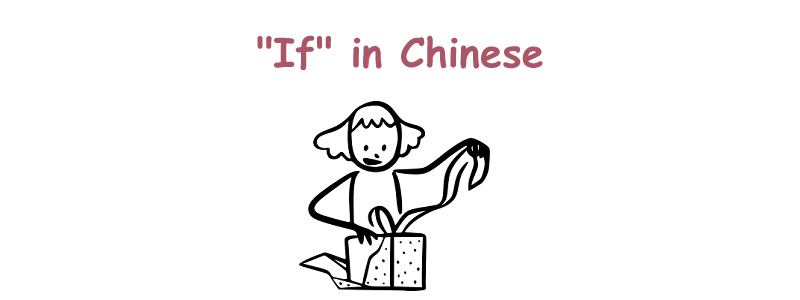Introduction:Ever noticed how English mainly uses “if,” while Chinese has multiple ways to express the same idea? The terms 假如 jiǎrú, 萬一 wànyī, 要是 yàoshi, 如果 rúguǒ, 的話 dehuà, 假設 jiǎshè, 倘若 tǎngruò, and 若是 ruòshì假如 jiǎrú, 万一 wànyī, 要是 yàoshi, 如果 rúguǒ, 的话 dehuà, 假设 jiǎshè, 倘若 tǎngruò, and 若是 ruòshì are all used to express…
Tag: if
“if… then…” in Chinese – jiǎrú and wànyī
Grammar Point:In Chinese, 假如 jiǎrú and 萬万一 wànyī are both used to express conditional or hypothetical situations, similar to “if” in English, but they serve slightly different purposes and tones. Structure 假如 jiǎrú + condition + (就 jiù) + result 假如 jiǎrú is used for hypothetical or imagined scenarios, similar to saying “if” or “in case” in English….

